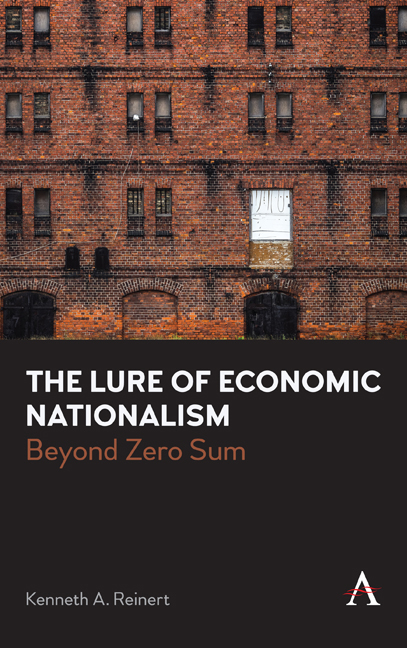Book contents
8 - Pandemic Nationalism
Published online by Cambridge University Press: 28 February 2024
Summary
On 5 October 2020, US president Donald Trump appeared on the Truman Balcony of the White House. Days before, he had tested positive for COVID-19 as had many other individuals who had attended recent White House functions. On the balcony, he extoled his own leadership and strength. Many likened this event to Evita Peron's similar appearance on a balcony of the Casa Rosada in Buenos Aires on another October day in 1951 when she gave her final speech to supporters in the Plaza de Mayo. Given President Trump's COVID-19 status, and his checkered approach to combating the pandemic, critics dubbed this his Covita moment, and it was indeed emblematic of his administration and its approach to the pandemic.
The COVID-19 pandemic changed the world in many ways. For starters, it impacted growth, employment, investment and trade. The World Bank suggested that the pandemic-induced recession was the worst since World War II. It was more pronounced than the recessions of 1975, 1982 and 1991. In some respects, it even overshadowed even the global financial crisis of 2009. What is more, because the pandemic undermined several important growth factors, the recessionary effects were likely to be long term, particularly given the continued emergence of new variants, including Delta and Omicron.
In 2020, Carmen Reinhart and Vincent Reinhart put it this way:
The shared nature of this shock—the novel coronavirus does not respect national borders—has put a larger proportion of the global community in recession than at any other time since the Great Depression. As a result, the recovery will not be as robust or rapid as the downturn. And ultimately, the fiscal and monetary policies used to combat the contraction will mitigate, rather than eliminate, the economic losses, leaving an extended stretch of time before the global economy claws back to where it was at the start of 2020.
Despite these dire economic conditions, some economic nationalists saw the pandemic as an occasion to further their cause. For example, as the deaths from COVID-19 reached 100,000 in the United States, US trade representative Robert Lighthizer referred to the pandemic as an opportunity to reshape trade relations and had the audacity to refer to these trade relations (and not the pandemic) as a “disease.”
- Type
- Chapter
- Information
- The Lure of Economic NationalismBeyond Zero Sum, pp. 117 - 136Publisher: Anthem PressPrint publication year: 2023



